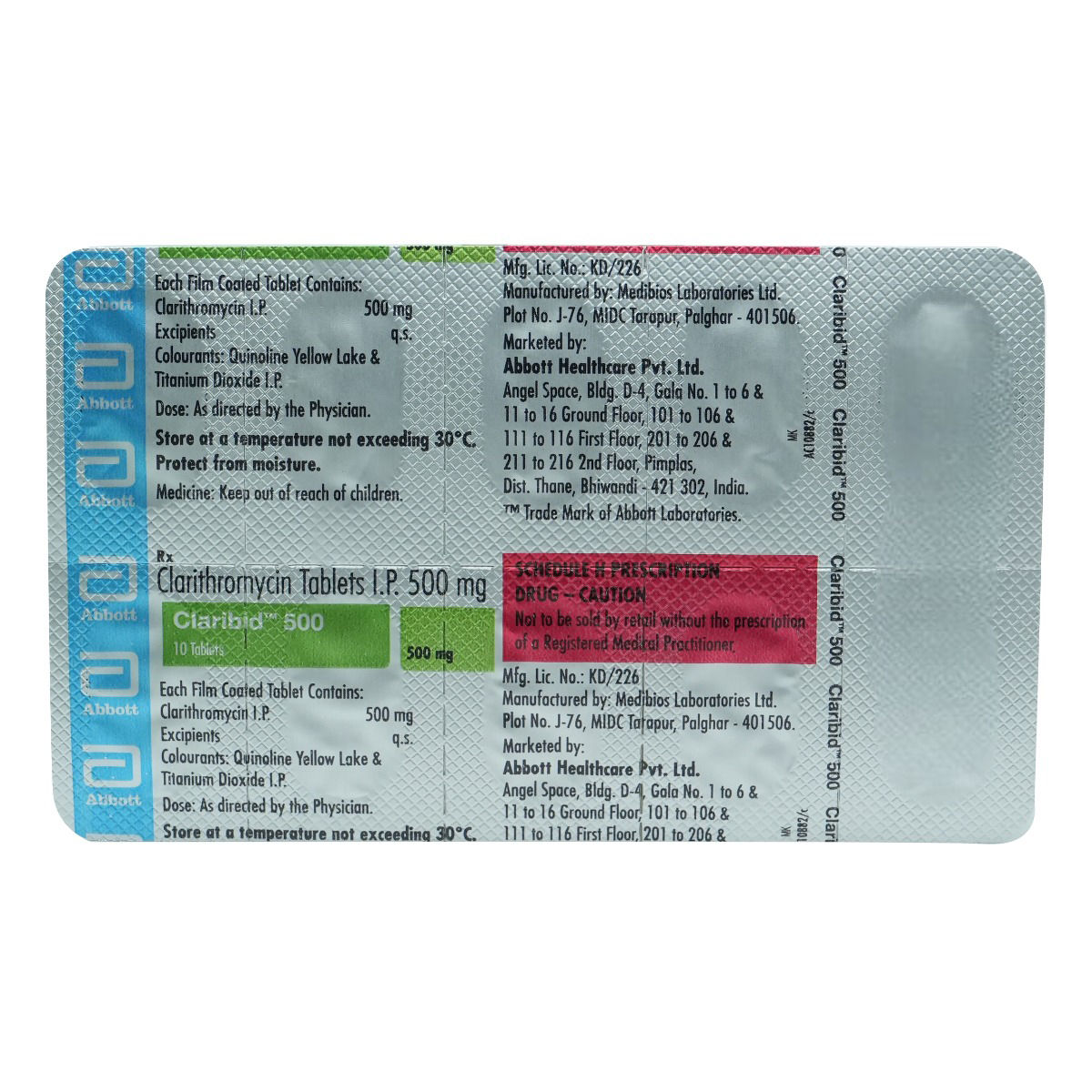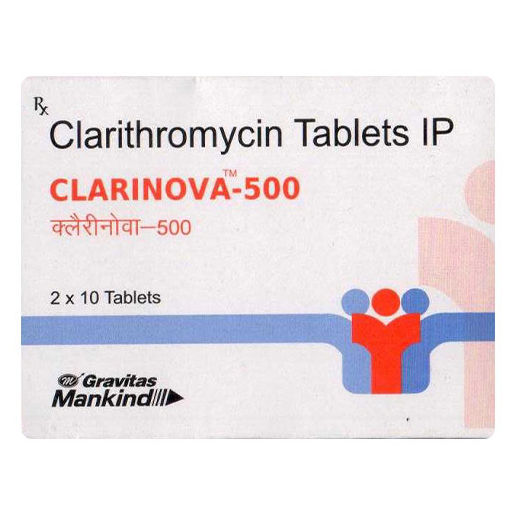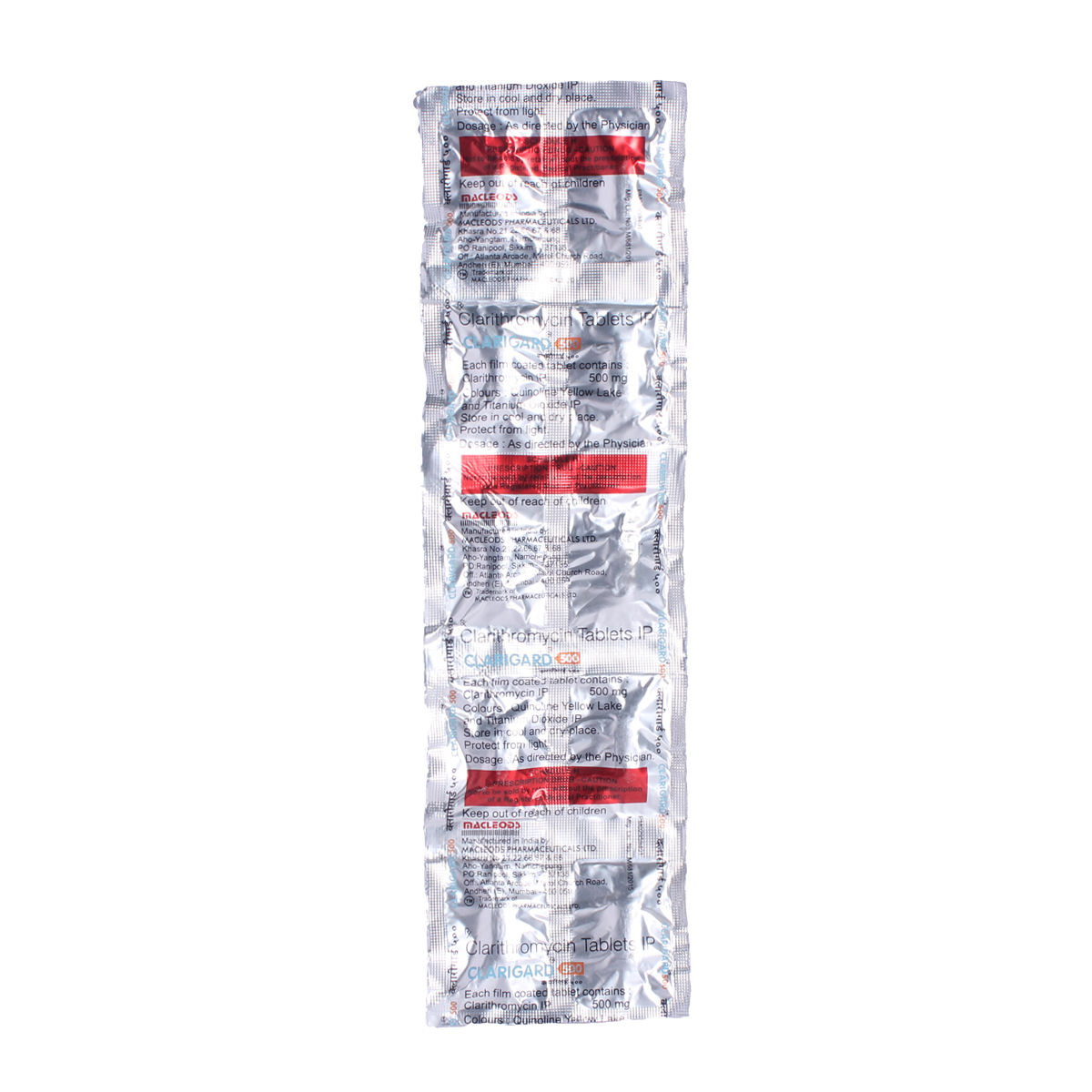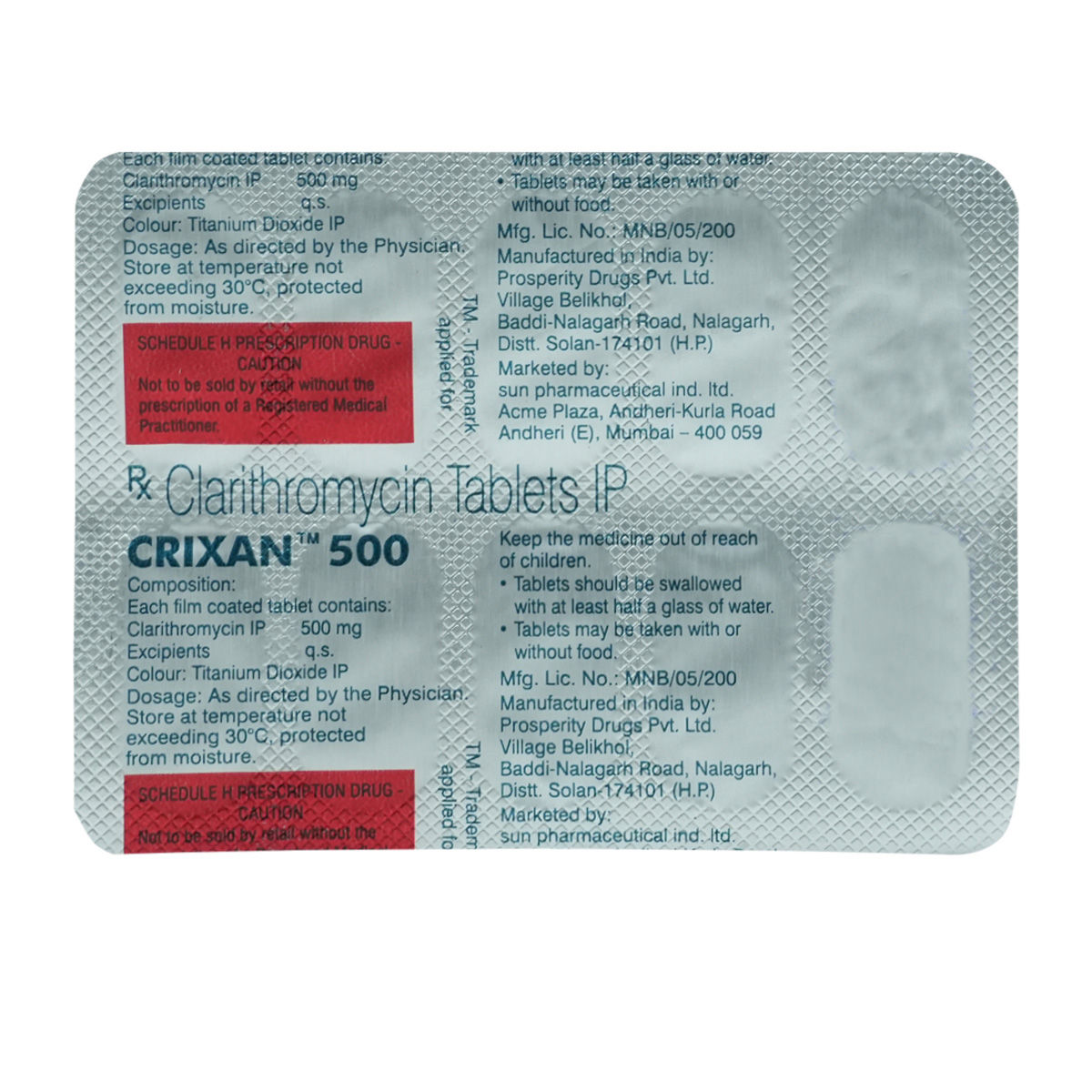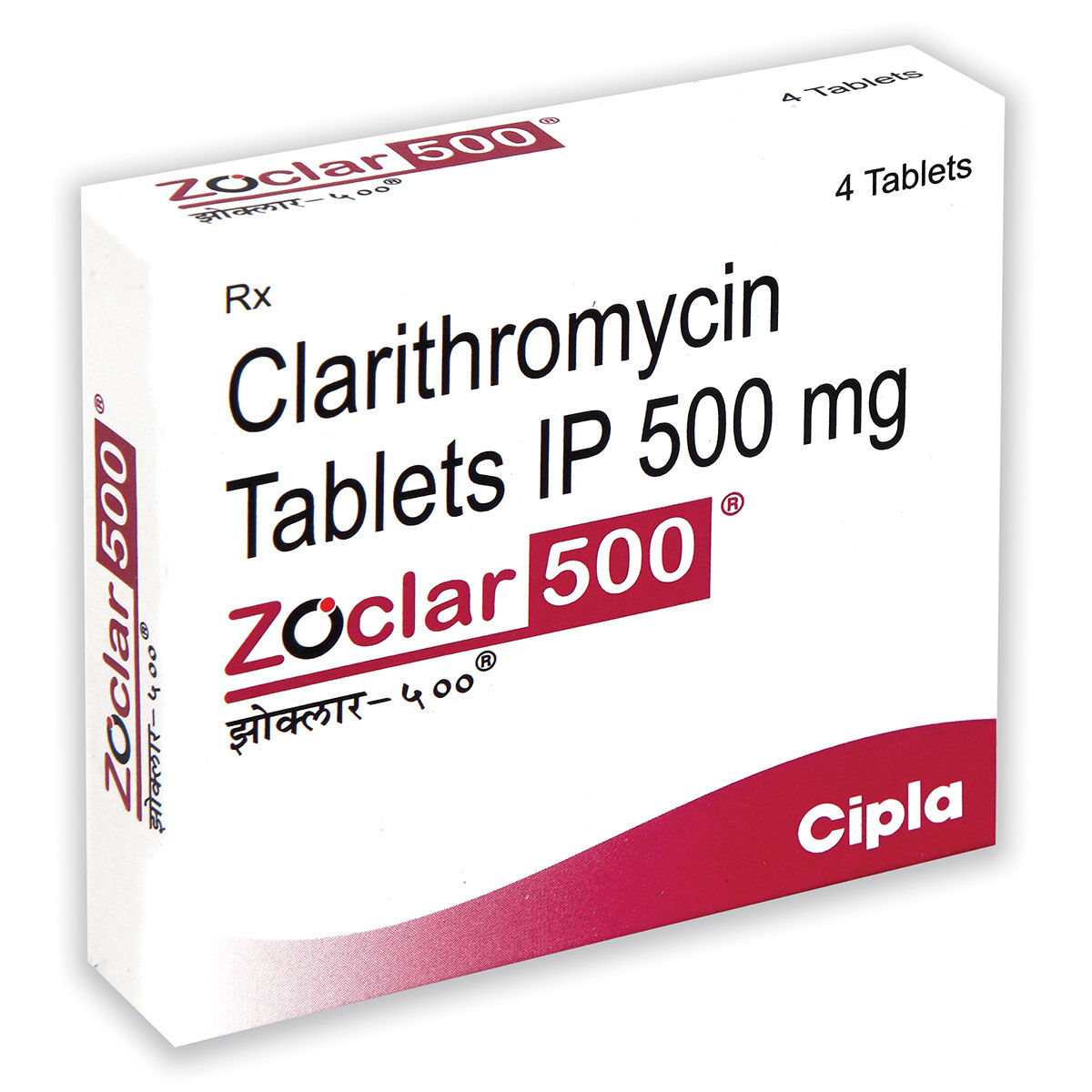Klyocin 500 mg Injection 1's
₹1305*
MRP ₹1450
10% off
₹1232.5*
MRP ₹1450
15% CB
₹217.5 cashback(15%)
Free Delivery
With Circle membership
(Inclusive of all Taxes)
This offer price is valid on orders above ₹800. Apply coupon PHARMA10/PHARMA18 (excluding restricted items)
Know Your Delivery Time
Provide Delivery Location

Available Offers
 Prescription drug
Prescription drugWhats That

Secure Payment

India's Most Trusted Pharmacy

Genuine Products
Composition :
Manufacturer/Marketer :
Consume Type :
Return Policy :
Expires on or after :
About Klyocin 500 mg Injection
Klyocin 500 mg Injection belongs to the group of medicines known as macrolide antibiotics used to treat infections caused by bacteria such as bronchitis, pneumonia, throat, sinus, skin and soft tissue infections. It is prescribed for treating severe infections or when oral therapy is ineffective. A bacterial infection is a condition in which bacteria grow in the body and cause infection. It can target any body part and multiply very quickly.
Klyocin 500 mg Injection contains 'Clarithromycin', which works by killing the bacteria that cause the infection by preventing the synthesis of essential proteins necessary for the survival of the bacteria. Thereby, it effectively treats bacterial infections.
Klyocin 500 mg Injection will be administered by a healthcare professional; do not self-administer. You may experience injection site phlebitis (redness, swelling, and pain), headache, nausea (feeling sick) or vomiting (being sick), stomach cramps or tummy pain, and diarrhoea. Most of these side effects of Klyocin 500 mg Injection do not require medical attention and gradually resolve over time. Please consult your doctor if these side effects become troublesome.
Inform your doctor if you are pregnant, suspect you are pregnant, plan to have a baby or if you are breastfeeding; your doctor will prescribe Klyocin 500 mg Injection only if the benefits outweigh the risk. Let your doctor know if you have/had liver problems; your doctor may need to monitor your liver function. Klyocin 500 mg Injection may cause dizziness, confusion, and loss of balance. If you experience these, you should not drive or operate machinery. Let your doctor know about your medical condition and the medications you are taking to avoid any interactions.
Uses of Klyocin 500 mg Injection
Directions for Use
Medicinal Benefits
Klyocin 500 mg Injection belongs to the group of medicines known as macrolide antibiotics used to treat infections caused by bacteria such as lower respiratory tract infections (acute and chronic bronchitis and pneumonia), upper respiratory tract infections (sinusitis and pharyngitis), and skin & soft tissue infections [folliculitis (inflammation of hair follicles), erysipelas (large raised red patches on the skin), cellulitis (bacterial skin infection)]. Klyocin 500 mg Injection works by preventing the production of proteins required by the bacteria for its survival. Thereby killing the bacteria and treating infections. Klyocin 500 mg Injection is prescribed for treating severe infections or when oral therapy is ineffective.
How Klyocin 500 mg Injection Works
Storage
Side Effects of Klyocin 500 mg Injection
- Inflammation, pain or tenderness at the site of injection
- Nausea
- Vomiting
- Increased sweating
- Stomach pain
- Diarrhoea
- Headache
What if I have taken an overdose of Klyocin 500 mg Injection
Drug Warnings
Do not take Klyocin 500 mg Injection if you are allergic or hypersensitive to clarithromycin, any of the ingredients in Klyocin 500 mg Injection, any other macrolide antibiotic, or ketolide (macrolide derivatives). Consult your doctor if you are pregnant or breastfeeding. Inform your doctor if you have/had hypokalemia (abnormally low levels of potassium in the blood), hypomagnesemia (abnormally low levels of magnesium in the blood), severe kidney or liver problems, heart rhythm disorders, heart problems, or are prone to fungal infections (e.g. thrush).
Diet & Lifestyle Advise
- Take probiotics after completing the full course of Klyocin 500 mg Injection to restore healthy bacteria in the intestine that may have been killed due to the use of antibiotics. Taking probiotics after antibiotic treatment can reduce the risk of antibiotic-associated diarrhoea. Certain fermented foods like yoghurt, cheese, sauerkraut and kimchi can help restore the intestine's good bacteria.
- Include more fibre-enriched food in your diet, as it can be easily digested by gut bacteria which helps stimulate their growth. Whole grains like whole-grain bread, and brown rice, should be included in the diet.
- Avoid intake of alcoholic beverages with Klyocin 500 mg Injection as it can make you dehydrated and affect your sleep. This can make it harder for your body to aid Klyocin 500 mg Injection in fighting off infections.
Habit Forming
Therapeutic Class
Klyocin 500 mg Injection Substitute

Claribid 500 Tablet 10's
₹40.14per tabletClarinova-500 Tablet 10's
₹33.80per tabletClarigard 500 Tablet 10's
by AYUR
₹31.32per tabletCloff 500 Tablet 10's
₹40.14per tabletClarimin 500mg Tablet 4's
₹34.88per tablet
Product Substitutes
Alcohol
Caution
It is advisable to avoid or limit alcohol intake.
Pregnancy
Caution
Please consult your doctor if you are pregnant or planning for pregnancy.
Breast Feeding
Caution
It is not known if Klyocin 500 mg Injection passes into breastmilk. Please consult your doctor.
Driving
Caution
Klyocin 500 mg Injection may cause dizziness, confusion, and loss of balance. Therefore avoid driving or operating machinery if you experience any of these symptoms.
Liver
Caution
Caution is advised. If you have/had liver problems, your doctor may need to monitor your liver function or discontinue treatment.
Kidney
Caution
Consult your doctor if you have kidney problems, as your doctor may need to adjust the dose.
Children
Caution
Klyocin 500 mg Injection is not recommended for children as safety and effectiveness have not been established.
FAQs
Country of origin
Manufacturer/Marketer address
Disclaimer
Author Details
We provide you with authentic, trustworthy and relevant information






